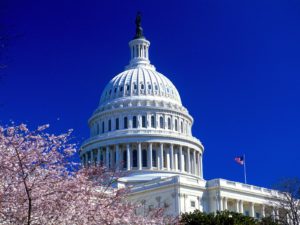Washington, D.C. November 15, 2017. Senator Charles Grassley (R-IA) has put forth two amendments to the Tax Cuts and Jobs Bill that are important to whistleblowers.
The major amendment addresses an issue that has been the subject of previous posts, defining the term “collected proceeds” in I.R.C. section 7623(b). The IRS and Department of Justice have taken the position whistleblowers who report criminal tax frauds, such as the numerous crimes committed by the largest Swiss banks, cannot obtain a whistleblower reward. They have argued that whistleblower rewards should not be paid on any criminal fines.
The Grassley amendment would fix this problem as it would clarify the basis for such awards by providing a definition for “proceeds” that would include criminal fines. It would also amend 7623(b)(5)(B) so that the $2 million threshold is updated to be based on the “proceeds” as defined in the updated definition.
An additional amendment by Grassley involves the taxation of whistleblower rewards. Due to a U.S. Supreme Court ruling, some whistleblowers are subjected to double-taxation. The decision was overturned by legislation, but some whistleblower laws may fall outside the scope of the Civil Rights Tax Reform Act. Grassley’s amendment clarifies that the law covers all major whistleblower laws and allows for whistleblower to deduct certain legal fees to prevent double-taxation of whistleblower rewards.
Both amendments address issues critical to oversight, accountability and whistleblower protection. The National Whistleblower Center has issued an action alert to calling on Members of Congress to support the Grassley Amendments. Stephen M. Kohn, the executive director of the National Whistleblower Center released the following statement:
“The NWC is strongly supporting these amendments regardless of where citizens stand on the overall tax bill. The Grassley amendments are the key vehicles for achieving desperately needed reforms to the IRS whistleblower program. Regardless of the outcome of the current tax reform bill, if Congress endorses Grassley amendment the ability of these provisions to be signed into law in the near future will be radically enhanced. It is imperative that whistleblower advocates utilize this opportunity to push for critically needed whistleblower reforms and create a legislative pathway for these reforms to become law, even if the current tax bill is defeated. Regardless of where you stand on the tax bill, we need to send a strong message to Congress that the IRS whistleblower law must fully cover criminal tax frauds.”
Links:
